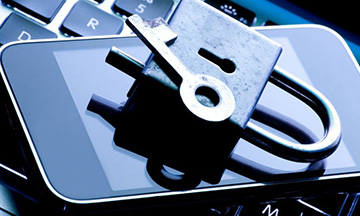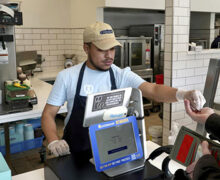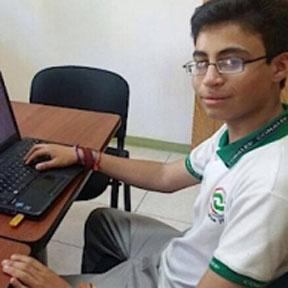
Cuando nos arrebataron la privacidad
When Our Privacy Was Taken Away
Los medios nos repiten estos días que el mundo no será el mismo después del coronavirus. ¿En qué va a cambiar? La revista The Economist, en su edición del 28.03.2020, nos da una pista: “A medida que avanza la pandemia, es probable que explote el poder único [del Gobierno] para monitorear a las personas que usan sus datos […] Lo más preocupante es la difusión de la vigilancia intrusiva”.
Para algunos esto podría no sonar a novedad, y las nuevas generaciones parecen mostrarse propensas a ceder su privacidad a cambio de comodidades digitales. Zbigniew Brzezinski, el consejero de Seguridad Nacional de Jimmy Carter, escribía ya en 1970 en su libro La era tecnotrónica que: “Se está diseñando una sociedad cada vez más controlada mediante técnicas depuradas con las que llegará a ser posible ejercer una vigilancia casi permanente sobre cada uno de los ciudadanos del planeta.”
Hoy estamos en el mejor momento para que este vaticinio se cumpla o se haga evidente. Google acaba de publicar su informe “Movilidad Comunitaria Covid-19” (https://www.google.com/covid19/mobility/) detallando abiertamente el rastreo absoluto que hace de los movimientos de todos sus usuarios en tiendas, supermercados, farmacias, parques, paraderos, centros de trabajo, residencias, etc., y a nadie parece incomodarle. Tampoco el hecho de que, ahora mismo, esté enfrentando un juicio por recopilar ilegalmente los datos de los niños que usan Google for Education.
Se ha creado la falsa sensación de que somos inmunes al control o de que este “no es tan malo”.
En contraposición, nos causa curiosidad y asombro la dictadura digital de regímenes como China, en los que –como cuenta Marta Peirano en El enemigo conoce el sistema–: “Un ciudadano que cruza en rojo puede ser multado instantáneamente en su cuenta bancaria. Y si comete más infracciones, como aparcar mal o criticar al Gobierno en una conversación privada con su madre, podría perder el empleo, el seguro médico y ni podría coger un avión”.
Pero nosotros no, nosotros creemos vivir en un mundo libre. Aún cuando un ex empleado de la CIA como Edward Snowden, revele en su libro Vigilancia permanente que: “Lo que China les hace públicamente a sus ciudadanos lo está haciendo Estados Unidos en secreto a todo el mundo.”
Parece que nuestra auto ingenuidad nos ha dejado más expuestos que nunca al control, y que esta pandemia sólo va a dejar en claro que hace mucho que nos arrebataron la privacidad.
The media repeats to us these days that the world will not be the same after the coronavirus. What is going to change? The Economist magazine, in its 28.03.2020 edition, gives us a clue: “As the pandemic progresses, it is likely to exploit the unique [government] power to monitor people who use their data […] Most worrying is the spread of intrusive surveillance.”
For some this may not sound new, and new generations seem likely to cede their privacy in exchange for digital conveniences. Zbigniew Brzezinski, Jimmy Carter’s National Security Adviser, wrote as early as 1970 in his book The Technotronic Era that: “An increasingly controlled society is being designed using refined techniques with which it will become possible to exercise almost permanent surveillance on each of the citizens of the planet.”
Today we are at the best time for this prediction to be fulfilled or become evident. Google just published their report “Community Mobility Covid-19” (https://www.google.com/covid19/mobility/) openly detailing the absolute tracking it makes of the movements of all its users in shops, supermarkets, pharmacies, parks, whereabouts, work centers, residences, etc., and no one seems be bothered by it. Nor is the fact that, right now, they’re facing a trial for illegally collecting data from children who use Google for Education.
The false feeling has been created that we are immune to control or that this “is not so bad”.
In contrast, we are curious and astonished by the digital dictatorship of regimes such as China, in which – as Marta Peirano tells it in The enemy knows the system –”A citizen who crosses the street in red can instantly be fined in his bank account. And if they commit more infractions, such as criticizing the government in a private conversation with their mother, they could lose their job, health insurance, and they wouldn’t even be able to catch a plane.”
But not us, we believe we live in a free world. Even when a former CIA employee like Edward Snowden reveals in his book Permanent Surveillance that: “What China publicly does to its citizens America is secretly making to everyone.”
It seems that our self-naivety has left us more exposed than ever to control, and that this pandemic is only going to make it clear that privacy has long since been taken away from us.

























